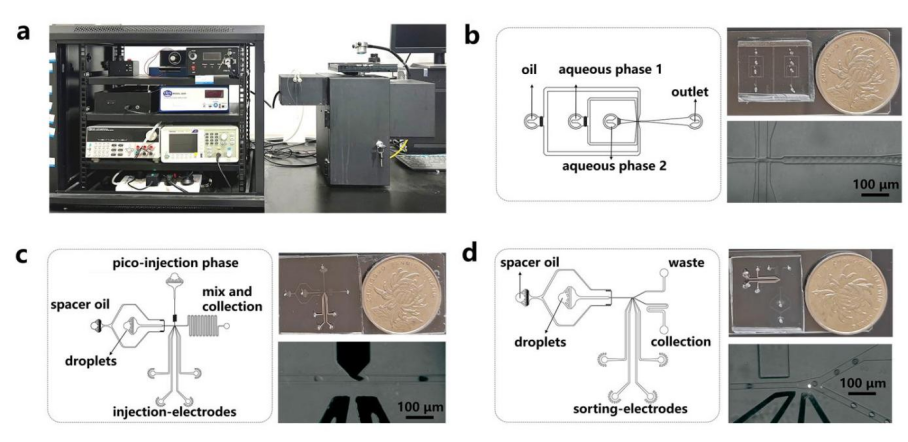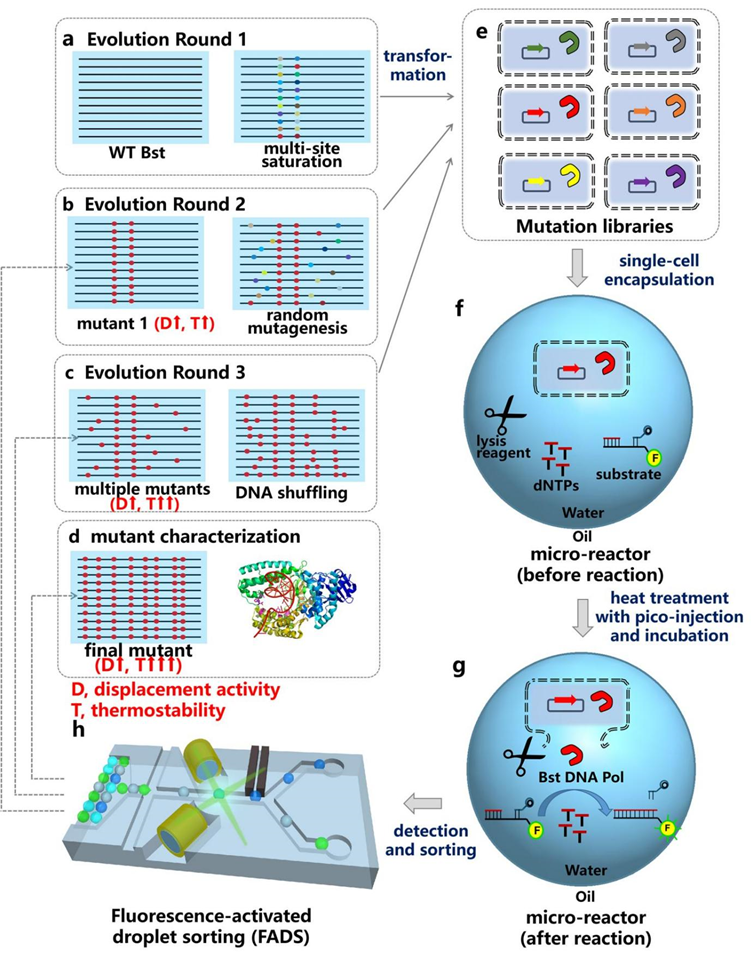Loop-mediated isothermal amplification (LAMP) is a simple yet highly efficient DNA amplification and detection method. With its high specificity, sensitivity, rapidness, accuracy, and simplicity, LAMP has gained increasing application in molecular point-of-care testing (POC-T), including disease diagnosis and genetically modified food detection. The Bst DNA polymerase, as the core enzym-e of LAMP assays, plays a decisive role in reaction speed and accuracy. Its properties—including activity, strand displa-cement capacity, and thermostability—are critical for maintaining efficient amplification under isothermal conditions (typ-ically 60–65°C) . The research group led by Ma Fuqiang from the Suzhou Institute of Biomedical Engineering and Technology (SIBET), Chinese Academy of Sciences, has long been committed to enzyme molecular modification and ultra-high-through-put enzyme screening technologies, and has established a Fluorescence-Activated Droplet Sorting (FADS) platform. Based on droplet microfluidics technology, this platform can screen large mutant libraries at the single-cell level, with a daily screening throughput of over 10 million mutants.

Figure 1. The FADS Ultra-High-Throughput Enzyme Screening Platform of the Ma Fuqiang Research Group 
Figure 2. Schematic Diagram of FADS-Based Directed Evolution of Bst DNA Polymerase Using this platform, researchers designed an ultra-high-throughput screening protocol for Bst DNA polymerase base-d on fluorescence-activated single-cell microfluidics. For the first time, they applied the ultra-high-throughput microdro-plet screening technology to the evolution of Bst DNA polymerase. They successfully screened out highly active mutan-ts and applied them to the LAMP assays. This significantly shortened the peak-emergence time of the LAMP reaction, improved the thermal stability of the enzyme, and enabled long - term storage of the enzyme. As a result, it achieve-d a leap from the WT enzyme to commercially valuable enzymes, fully demonstrating the great potential of FADS te-chnology in the efficient evolution of molecular enzymes.
|